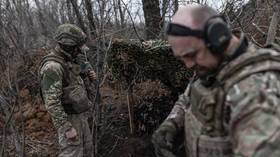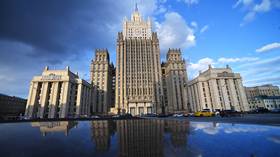Northern Pomors: living off the sea
A thousand kilometers north of Moscow on the White Sea coast lies an ancient land belonging to a sea-conquering people – the Pomors.
Sailors, fishermen, ship builders – the Pomor people have been linked with the sea for generations, and even today their way of life has not changed much.
“My grandfather used to build one-mast and two-mast boats. He was one of the best ship builders out there. Everyone in my family is connected to the sea. They were either sailors or captains,” says Arctic Sea captain German Burkov.
Burkov is a native of Patrekeevaka Island, one that he calls the Homeland of Captains. The island is only accessible during the summer months, and it takes a four-hour boat journey to get there. Today, it is inhabited by about 400 Pomors, who are the descendants of the island's very first settlers.
The so-called “traditional Pomor way of life” is certainly not just something out of a history book. They still construct wooden boats using old techniques, make their own fish nets and braid the ropes used for those fish nets with their own hands.
“This is a karbass, a coastal kind of boat,” explains boat builder Viktor Zamyatin. “It's very stable on seas, rising and falling smoothly with the waves.”
In the village of Patrekeevaka the houses are unique, dating back 300 years, and are very well preserved. All of them have a big fireplace which they use not only for cooking and baking. On top of it there is a warm bed – something you cannot do without in during the harsh winter conditions.
For the Pomors, adapting to whatever Mother Nature throws at them has become second nature. This resilience is also what has kept their culture alive throughout the centuries.
“I have been singing my whole life. My mother still sings. We collect old rituals and songs and revive them,” says local resident Maria Gorobtsova. She is wearing a traditional costume. It is certainly not an everyday outfit, but she says it helps her keep her ties with her people. “This dress belonged to my grandmother. When I put on this dress, I feel very good and have this desire to sing old songs.”
A desire she hopes to pass on to her young grandson.













